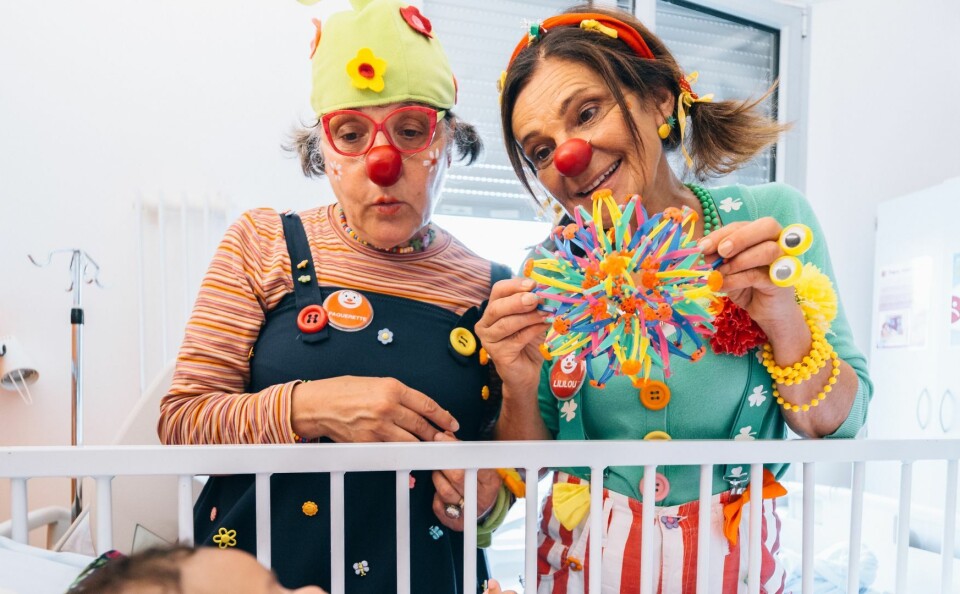-
SFR customers in France warned to be vigilant following cyberattack
Data from potentially millions of customers were taken following data breach
-
Festive travel reminder for residency card holders as new border checks expand in France
The EU’s Entry/Exit System is being rolled out progressively
-
Road blockades by farmers continue on Monday despite call for Christmas truce
A meeting between local union leaders and officials in Toulouse will determine pre-Christmas blockades
Scheme sends clowns to cheer up children in hospital in France
New volunteer clowns are trained by professionals before interacting with children and their families

Poorly children in the south of France are being made to feel a little better, thanks to 40 volunteer clowns.
RIRE Clowns is celebrating 30 years of bringing smiles to the faces of patients, families and staff at hospitals in Montpellier and Sète in the Hérault department.
The non-profit association is one of just a few in France to combine so many volunteers and professional clowns. More information about their work can be found here.
Read more: French hospitals find fun way to ease children's operation stress
‘It’s very intimate work’
Nadine Pons, 66, also known as Clown Roudoudou, started out as a volunteer with the association in 1998.
Now, she is one of the four professionals who work specifically with child cancer patients and their families.
The experience for both groups is very different.
“A volunteer goes to meet children in hospital in departments where they don’t actually see the children again,” Ms Pons said.
“They have a one-off mission. As for us professional clowns, we specialise in oncology, so we work in day hospital, in-patient, protected care and intensive care units, including paediatrics. It’s really very intimate work.”
Read more: Using teddy bears to ease children's hospital fears
‘A clown can empathise with children and families’
She also helps train each new crop of volunteers.
The association pays for the training, which includes 12 workshops and ‘buddying up’ with a professional clown.
Volunteers are also offered monthly clown labs, as well as listening workshops with a professional psychologist.
When it comes to potential clown candidates, Ms Pons said they look for people who are stable and committed.
“For me, a clown is completely authentic, someone who can empathise with children and families,” she said.
The rewards for the volunteers’ hard work and dedication speak for themselves.
“There are some unexpected moments and very beautiful encounters, but there’s a lot of laughter too,” she said.
“We are clowns after all.”
Related articles
Rescue dog trained to soothe cancer patients at top Paris hospital
French hospitals embrace hypnosis for pain relief during treatments
How does hospital and other medical transport work in France?
























